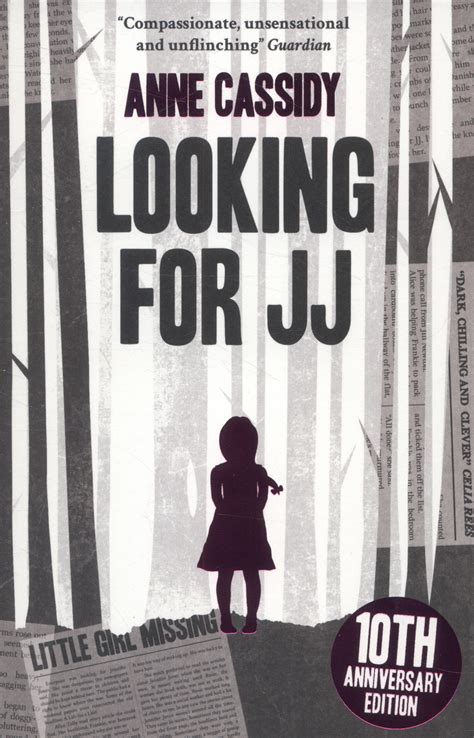A Quote by Elizabeth Janeway
television. It has changed the way that we perceive the world out there, and though we know that - have indeed been bombarded with analyses on the consequences for society, for the family, and for individual psychology - I don't believe that we have yet begun to appreciate the reach of its subliminal effects, of what we might call 'the slow viruses.' They not only get into our ways of seeing, they pervade the ways in which we weave our perceptions together into patterns that support and explain our thinking and our doing and both direct and hinder various kinds of relationships.
Quote Topics
Appreciate
Been
Begun
Believe
Bombarded
Both
Call
Changed
Consequences
Direct
Doing
Don't Believe
Effects
Explain
Family
Get
Hinder
Indeed
Individual
Kinds
Know
Might
Only
Our
Out
Patterns
Perceive
Perceptions
Psychology
Reach
Relationships
Seeing
Slow
Society
Subliminal
Support
Television
Thinking
Though
Together
Various
Viruses
Way
Ways
Weave
Which
World
Related Quotes
Our senses enable us to perceive only a minute portion of the outside world. Our hearing extends to a small distance. Our sight is impeded by intervening bodies and shadows. To know each other we must reach beyond the sphere of our sense perceptions. We must transmit our intelligence, travel, transport the materials and transfer the energies necessary for our existence.
The principle of self-reliance grows out of a fundamental doctrine of the Church, that of agency. Just as each individual is accountable for his choices and actions in spiritual matters, so also is he accountable in temporal matters. It is through our own efforts and decisions that we earn our way in this life. While the Lord will magnify us in both subtle and dramatic ways, he can only guide our footsteps when we move our feet. Ultimately, our own actions determine our blessings or lack of them. It is a direct consequence of both agency and accountability.
[Learn] to slow down and perceive the mysterious events and opportunities that happen in life. We call them coincidences, but if we look closely we see they are meaningful. They bring us just the right information at just the right time to extend our careers, relationships, and growth. These events feel destined in some way, as though the world is set up to help us make a better life, work through our problems, and reach our dreams - if we just pay attention.
Our submission to general principles is necessary because we cannot be guided in our practical action by full knowledge and evaluation of the consequences. So long as men are not omniscient, the only way in which freedom can be given to the individual is by such general rules to delimit the sphere in which the decision is his. There can be no freedom if the government is not limited to particular kinds of action but can use its powers in any ways which serve particular ends.
We are living in a renaissance of personal writing. People are rebalancing the impersonalization endemic to modern society with an increase in personal introspection. We have enough common psychology under our belts to know that psychology doesn't explain or heal everything and that it isn't the fulfillment of awareness, but its beginning. We are undergoing a shift in paradigms in which we are trying to develop new models for humanness and human responsibility. This is no small task. Our individual lives are placed under increasing pressure to respond adequately to both inner and outer change.
Many of our actions degrade our habitat because we undertake them in order to reach goals whose allure blinds us to myriad dire consequences. In order to fuel our complex civilizations, we are lacing our planet's atmosphere with carbon dioxide, a greenhouse gas that, if it has not already begun doing so, will soon warm the Ice Age climate to which we owe our very existence.
Ultimately, one of the best ways to take care of our souls is to build a society that supports rather than undermines our highest moral and spiritual intuitions and inclinations. Yet, building that society can never be divided from the daily practices through which we live out our ethical and spiritual lives, both in the way we treat others around us, and in the way we nourish the God within us.
Stick with the global warming for just a second, because you're fully aware that I call it a hoax, and that might be off-putting to some. The simplest way to explain to people who want to believe it's true - and you know who they are. Those are people looking for ways to make themselves matter. They run around and they hear that they're to blame for the world getting warm, or that the country is, our prosperity, our high standard of living and the fact that we've stolen all these resources from around the world, that we're using more oil than we have any right to.
To accept Christ is to know the meaning of the words 'as he is, so are we in this world.' We accept his friends as our friends, his enemies as our enemies, his ways as our ways, his rejection as our rejection, his cross as our cross, his life as our life and his future as our future. If this is what we mean when we advise the seeker to accept Christ, we had better explain it to him. He may get into deep spiritual trouble unless we do.
In the Small group the individual can know the effects of his actions on his several fellows, and the rules may effectively forbid him to harm them in any manner and even require him to assist them in specific ways. In the Great Society many of the effects of a person's actions on various fellows must be unknown to him. It can, therefore, not be the specific effects in the particular case, but only rules which define kinds of actions prohibited or required, which must serve as guides to the individual.
There are degrees of loneliness, ways in which the experience of loneliness deepens, becomes something like what we might call a way of life. This way of life is both what is most damaging to us as a culture, and, paradoxically, contributes to its richness. It may in the end be our lasting contribution to the life of our planet.
There is no one kind of thing that we 'perceive' but many different kinds, the number being reducible if at all by scientific investigation and not by philosophy: pens are in many ways though not in all ways unlike rainbows, which are in many ways though not in all ways unlike after-images, which in turn are in many ways but not in all ways unlike pictures on the cinema-screen--and so on.

































